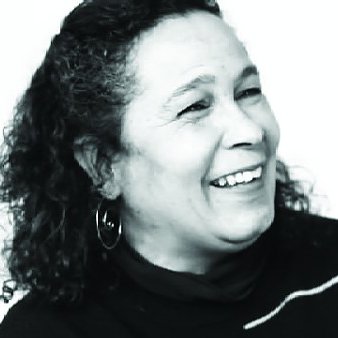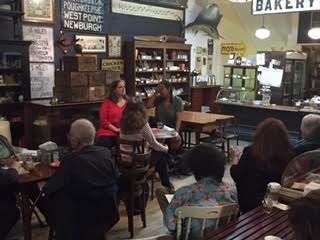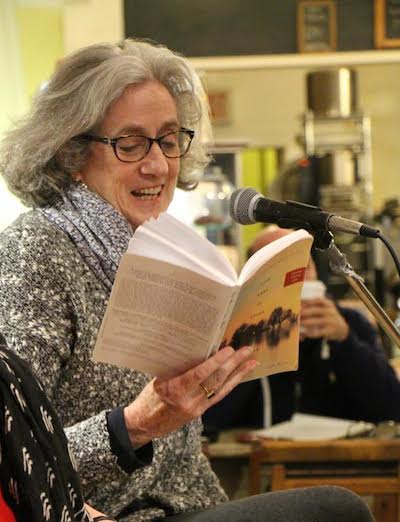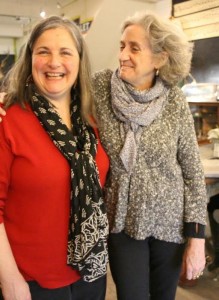WORD CAFE EVENT ARCHIVE
JENNY MILCHMAN + JEFFREY DAVIS “INSPIRATION” 11/19/15
Hard to believe we’ve reached our last author event of the Fall 2015 season! Our topic was “Inspiration,” and authors and workshop leaders Jenny Milchman and Jeffrey Davis were an inspired pairing.
Jenny led off by reading the opening of her latest novel, As Night Falls. She described her turf as “tales of women who are about to cross that thin gray line, whose life has been upheaved.” All of her published novels have roots in upstate New York, and she’s very concerned with the economic and cultural tensions between longtime locals and incoming weekenders and ex-urban residents–the workers who build showplace homes, and the people who own them. She’s also the founder of national initiative Take Your Child to a Bookstore Day and the star of the World’s Longest Book Tour.
Jeffrey wrote the groundbreaking nonfiction book The Journey from the Center to the Page: Yoga Philosophies and Practices as Muse for Authentic Writing and has worked as a creativity consultant around the globe. Practicing yoga, he says, “shifted my concentration and gave me an emotional range that the 25-year-old poet never had. It opened me up as a writer.” He treated us to readings of three poems from his forthcoming collection Coat Thief, due out in 2016.
This opened a freeform discussion of creativity and process, where ideas come from and how they develop. Jenny can remember the “genesis moment” of all her published and unpublished novels except for As Night Falls, which mystified her with its eerily prescient similarity to the Adirondack convict escape which filled the media right before its publication.
Jeffrey spends “a lot of time in museums, watching people watch art.” Before he became a father, he had “a regular poetry rhythm, waking up first and attending to whatever that tremor of a feeling is.” He’s trained himself to “seed my mind,” writing down something–an image, description, phrase or melody that’s “somehow in conversation with that feeling.”
Both writers agree that movement helps. Yoga, walking, driving, even a shower can give an idea room to stretch. Jenny also urged writers to “write the kind of book you curl up with at night.” Jeffrey described “the hunger for that immersed state, the song of joyful concentration.”
THE EXERCISES:
Jeffrey asked writers to start from “the nuance of feeling.” What are you or your character feeling at this moment? Don’t answer directly. Write into a particular description, scene or object that’s in conversation with that feeling.
Jenny invited us to “Look around this space. What would happen if something went wrong here tonight?”
Nina paid homage to the evening’s downpour by inviting writers to describe being outdoors in terrible weather, and heading toward a light. What does it turn out to be? Do you go inside?
 This week’s reading was a special treat–alongside her credits as screenwriter, playwright, and author of The Gold Stone Girl trilogy, Nicole Quinn is an award-winning audiobook narrator(http://nicolequinnnarrates.blogspot.com/). She read a brief selection from each of the trilogy’s three books (It’s a Nightmare, Disbelief, and Rewire), addressing our topic of “World-Building,” along with intertwined issues of character, narrative voice, and creative process
This week’s reading was a special treat–alongside her credits as screenwriter, playwright, and author of The Gold Stone Girl trilogy, Nicole Quinn is an award-winning audiobook narrator(http://nicolequinnnarrates.blogspot.com/). She read a brief selection from each of the trilogy’s three books (It’s a Nightmare, Disbelief, and Rewire), addressing our topic of “World-Building,” along with intertwined issues of character, narrative voice, and creative process

 She also talked about honoring the unexpected. Many heads nodded as Aki described how the vision in your head of what you plan to write changes through the physical process of putting words on paper. One thing leads to another, and (much like our discussion of writing about place) you find yourself following a different path than the one you preplanned. Be open to this. There is joy and surprise in discovering where your words lead you.
She also talked about honoring the unexpected. Many heads nodded as Aki described how the vision in your head of what you plan to write changes through the physical process of putting words on paper. One thing leads to another, and (much like our discussion of writing about place) you find yourself following a different path than the one you preplanned. Be open to this. There is joy and surprise in discovering where your words lead you.